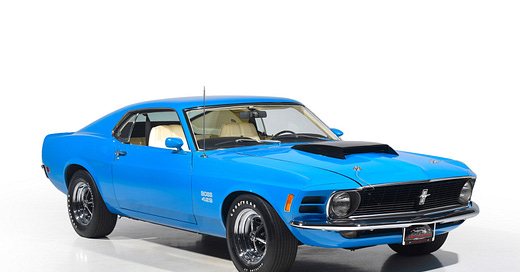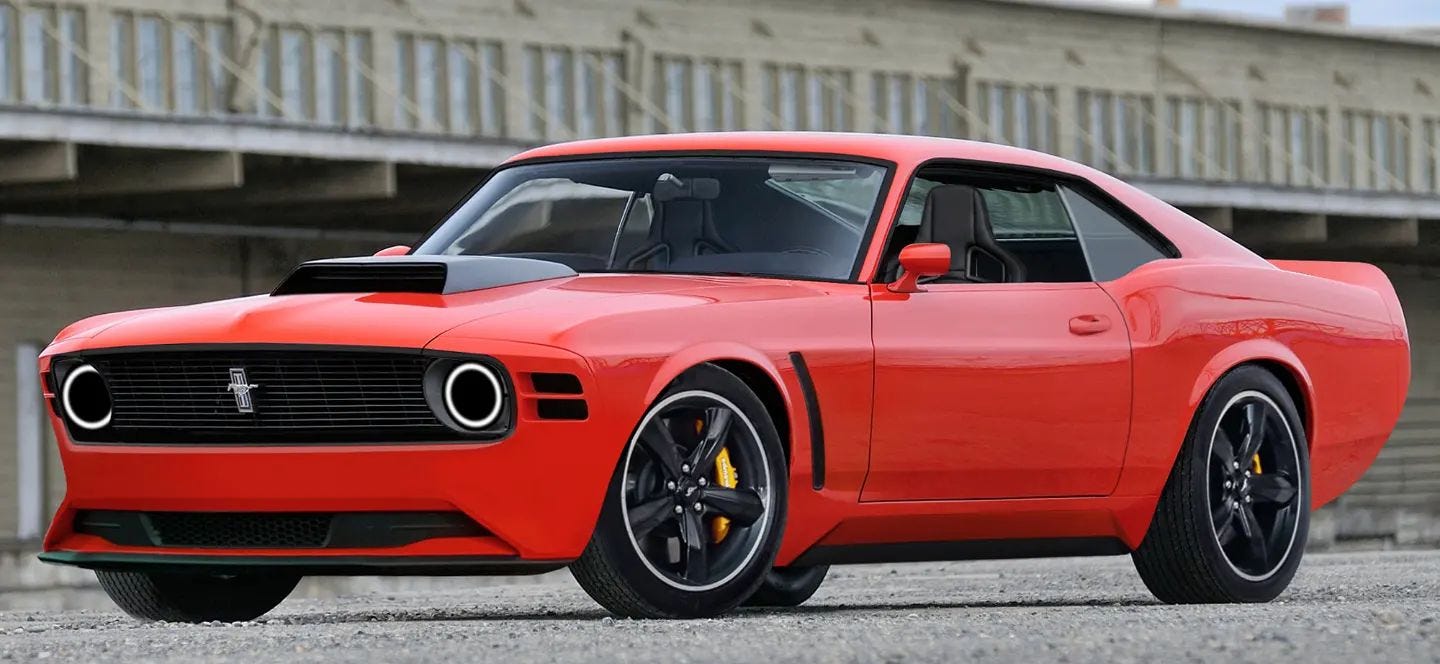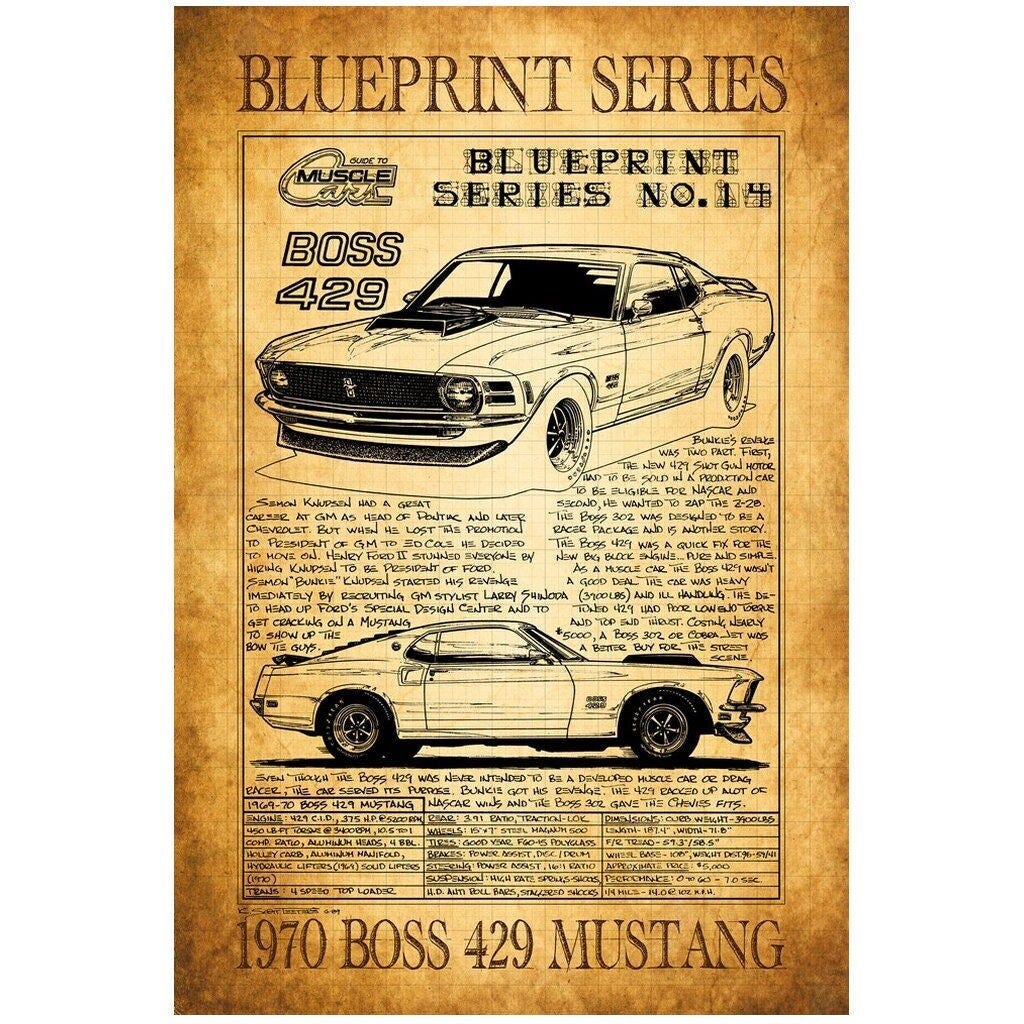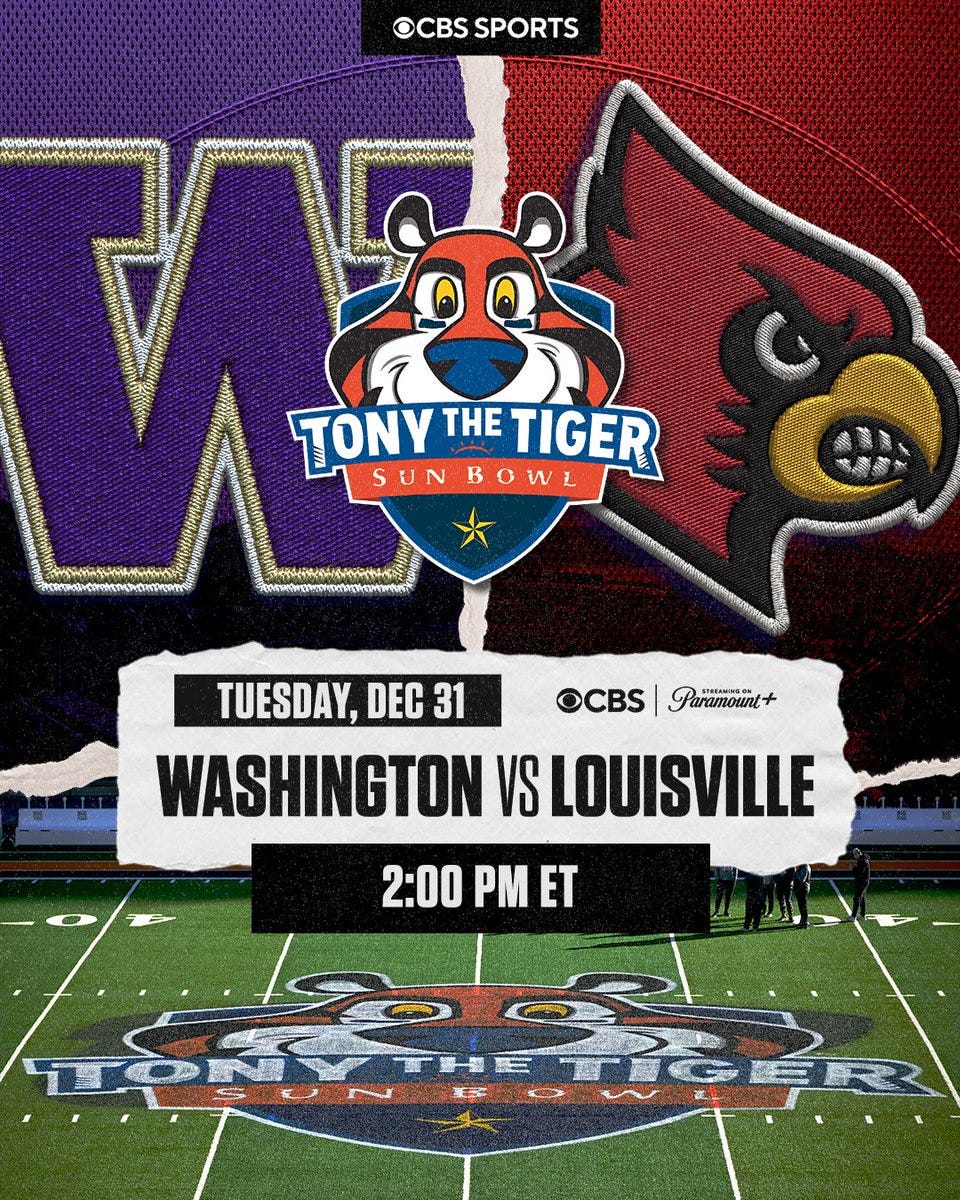The Real Boss: A Look Back at the 1970 Ford Mustang Boss 429
From its inception to its cultural impact, the Boss 429 is a story of innovation, exclusivity, and timeless appeal.
Few cars in the history of American muscle command the reverence and awe that the 1970 Ford Mustang Boss 429 does. This rare and highly coveted vehicle represents the pinnacle of Ford’s engineering prowess and marketing ingenuity during the golden era of muscle cars.
From its inception to its cultural impact, the Boss 429 is a story of innovation, exclusivity, and timeless appeal.
The History Behind the Boss 429
The Boss 429 was born out of necessity and Ford’s ambition to dominate the NASCAR racing circuit. In the late 1960s, NASCAR required manufacturers to use engines homologated for street use. To compete with Chrysler’s HEMI engines, Ford needed a powerful contender. The solution was the 429-cubic-inch V8 engine—a high-performance marvel capable of rivaling anything on the track.
Ford tasked its Kar Kraft division in Brighton, Michigan, with the challenge of fitting this massive engine into the Mustang’s chassis. The result was a car that not only met NASCAR’s homologation requirements but also became a street-legal powerhouse. Produced in limited numbers, the 1970 Boss 429 marked the final year of this iconic model, with only 499 units built.
The Heart of the Beast: Engine and Performance
At the core of the Boss 429 was its semi-hemispherical 429 V8 engine, designed explicitly for high-speed endurance. The engine featured a unique aluminum cylinder head design, a Holley 735 CFM carburetor, and heavy-duty components to withstand extreme conditions. Officially, Ford rated the engine at 375 horsepower, but enthusiasts and historians argue that the real output was closer to 500 horsepower.
The Boss 429 was mated to a 4-speed manual transmission and featured a 3.91:1 rear axle ratio, making it a true driver’s car. It could achieve 0 to 60 mph in under 7 seconds and had a top speed exceeding 120 mph. While it wasn’t the quickest off the line compared to some competitors, the Boss 429 excelled in high-speed stability and handling—attributes crucial for NASCAR dominance.
Sculpted for Speed: Body Features
The 1970 Boss 429 featured subtle yet aggressive styling that set it apart from standard Mustangs. Ford gave it a wide, muscular stance with functional front and rear spoilers, a hood scoop, and flared wheel arches to accommodate wider tires. The car’s front end included a distinctive blacked-out grille and headlights, emphasizing its menacing persona.
Unique to the Boss 429 were its body modifications performed by Kar Kraft. To fit the massive engine, the front suspension towers were modified, and the battery was relocated to the trunk. The car’s lowered stance and special suspension components enhanced its handling characteristics, ensuring it performed as well as it looked.
Exclusive Details and Unique Properties
The Boss 429’s exclusivity is one of its defining traits. Each car was hand-assembled and bore a unique Kar Kraft production number, making every unit a piece of automotive art. Ford offered the Boss 429 in a limited palette of colors, including Grabber Blue, Calypso Coral, and Pastel Blue, further enhancing its rarity.
Interior features included high-back bucket seats, a woodgrain dash, and a Hurst shifter. While the cabin leaned more towards functionality than luxury, the Boss 429 delivered an immersive driving experience. Additional unique touches included the “Boss 429” decals and the NASCAR-inspired suspension and cooling systems.
Celebrity Owners and Pop Culture Impact
Over the years, the Boss 429 has attracted a host of celebrity owners and enthusiasts. Jay Leno, a well-known car aficionado, has featured the Boss 429 on his show, Jay Leno’s Garage. Other notable collectors include former NFL players and Hollywood stars who value the car’s combination of performance and rarity.
In pop culture, the Boss 429 has made appearances in movies, television, and video games. Its muscular design and performance capabilities have earned it a spot in franchises like Fast & Furious and car-centric video games such as Forza Motorsport. These appearances have cemented its status as a cultural icon.
Original Marketing Campaigns
Ford’s marketing campaigns for the Boss 429 emphasized its racing pedigree and performance. Advertisements highlighted its NASCAR roots and touted it as a car built for serious enthusiasts. Ford’s strategy to limit production numbers added to the car’s mystique, making it a must-have for collectors.
Dealerships also played a role in promoting the Boss 429. Select dealers were given the privilege of selling this exclusive model, and many created unique promotional events to showcase its prowess. Test drives were often restricted to ensure that only serious buyers had access to the car, adding to its allure.
A Legacy on Wheels
The 1970 Ford Mustang Boss 429’s legacy extends far beyond its production run. Today, it is considered one of the most valuable muscle cars ever built, with pristine examples fetching millions at auction. Its combination of rarity, performance, and historical significance ensures that it remains a symbol of American automotive ingenuity.
Collectors and enthusiasts continue to celebrate the Boss 429 through car shows, club meets, and restoration projects. Its influence can be seen in modern Ford performance vehicles, which draw inspiration from the golden age of muscle cars.
Tidbits and Fun Facts
Each Boss 429 came with a front chin spoiler, but many owners opted for additional aerodynamic modifications post-purchase.
Despite its NASCAR roots, the Boss 429 never directly competed in NASCAR events due to rule changes.
The car’s hood scoop wasn’t just for show—it was a functional component designed to feed the massive engine with ample air.
Ford originally intended to use the 429 engine in the Torino, but the Mustang’s smaller, sportier platform made it a better candidate.
The 1970 Ford Mustang Boss 429 remains a masterpiece of engineering and design. Its unparalleled combination of power, rarity, and heritage makes it an enduring legend in the world of classic cars.
Everyday your story is being told by someone. Who is telling your story? Who are you telling your story to?
Email your sustainable story ideas, professional press releases or petro-powered podcast submissions to thecontentcreationstudios(AT)gmail(DOT)com.
#thecrudelife promotes a culture of inclusion and respect through interviews, content creation, live events and partnerships that educate, enrich, and empower people to create a positive social environment for all, regardless of age, race, religion, sexual orientation, or physical or intellectual ability.
CLICK HERE FOR SPECIAL PARAMOUNT + DISCOUNT LINK
The sun's out in The City of El Paso Texas!
The matchup for the 2024 Tony the Tiger Sun Bowl is set. Catch University of Louisville going against University of Washington on Tuesday, December 31. Coverage starts at 2PM ET!
Stream College Football on CBS live and so much more with the Paramount+ with SHOWTIME plan. Get started today or let your friends know about the BIG GAME!
It's gunna be GRRRRRRRRRRREAT!











